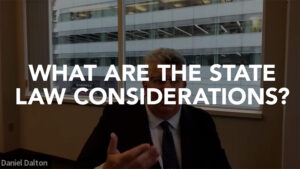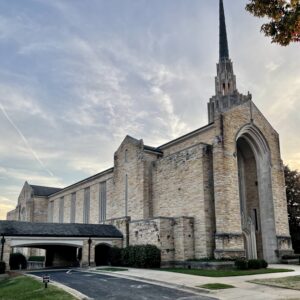
Give Now, Save later—The Fast-Approaching Expiration of Federal Estate and Gift Tax Exclusions
Benjamin Franklin once wrote that “nothing is certain except death and taxes.” While we might want to argue with Mr. Franklin and attempt to add


Benjamin Franklin once wrote that “nothing is certain except death and taxes.” While we might want to argue with Mr. Franklin and attempt to add

The Presbyterian Church (USA) has approved the Olympia Overture POL-01, introducing significant changes

In looking ahead to the June-July 2024 General Assembly and the likely approval of the Olympia Resolution rejecting local matters of conscience concerning ordination and marriage requirements, it may be helpful to look back over the Gracious Separation Policy approved by the the 2008 General Assembly in thinking through amicable resolutions. It is crucial to recall that procedures may vary by Synod and Presbytery, underscoring the importance of reviewing local rules before any actions are taken.

When a local church is considering joining a denomination, there are numerous factors to weigh carefully to ensure a good fit and a fruitful partnership. This decision should not be taken lightly, as it can significantly impact the church’s mission, ministry, and identity. Here are some key considerations for local churches contemplating denominational affiliation:

The recent Supreme Court opinion in NRA v. Vullo reaffirmed a long standing First Amendment principle: the government cannot threaten legal action against a third party to

The Presbyterian Church (USA), or PC(USA), does not have a single, uniform gracious dismissal policy. Instead, each presbytery (regional governing body) is responsible for developing its own policy, guided by the principles outlined by the General Assembly.

The Presbyterian Church (USA), or PCUSA, operates under a system of governance known as Presbyterian polity. This system emphasizes a representative form of leadership and decision-making based on a historic structure of governing bodies. It’s designed to foster shared responsibility, accountability, and collaboration among members and leaders. This blog will delve into the key aspects of PCUSA polity, exploring its structure, functions, and guiding principles.

The decision for a church to leave the Presbyterian Church (USA), or PCUSA, is a significant one with far-reaching implications. This blog aims to provide local churches with essential knowledge and considerations to navigate this complex process successfully.

Endowments stand as pillars of financial strength within some United Methodist and Presbyterian Church (U.S.A) churches. They provide resources that support ministries, outreach, and the upkeep of our sacred spaces. But as doctrine and discipline change, and as our world faces new challenges, a question arises: Should our church endowments be amended? And if so, how can we do this responsibly and in line with our faith?

The Religious Land Use and Institutionalized Persons Act (RLUIPA) provides vital protections for religious institutions facing discriminatory or unduly burdensome land use regulations. But what happens if a religious institution believes its RLUIPA rights have been violated? What kind of relief can they seek? In this blog post, we’ll explore the various remedies available to those who successfully bring a RLUIPA land use claim.
Problem Solvers for Religious and Nonprofit Organizations, Property Owners, and Businesses.
Do you have a question? We would love to hear from you. Click the button below and we’ll get in touch with you shortly.
Please note that this website may be considered attorney advertising in some states. Prior results described on this site do not guarantee similar outcomes in future cases or transactions.